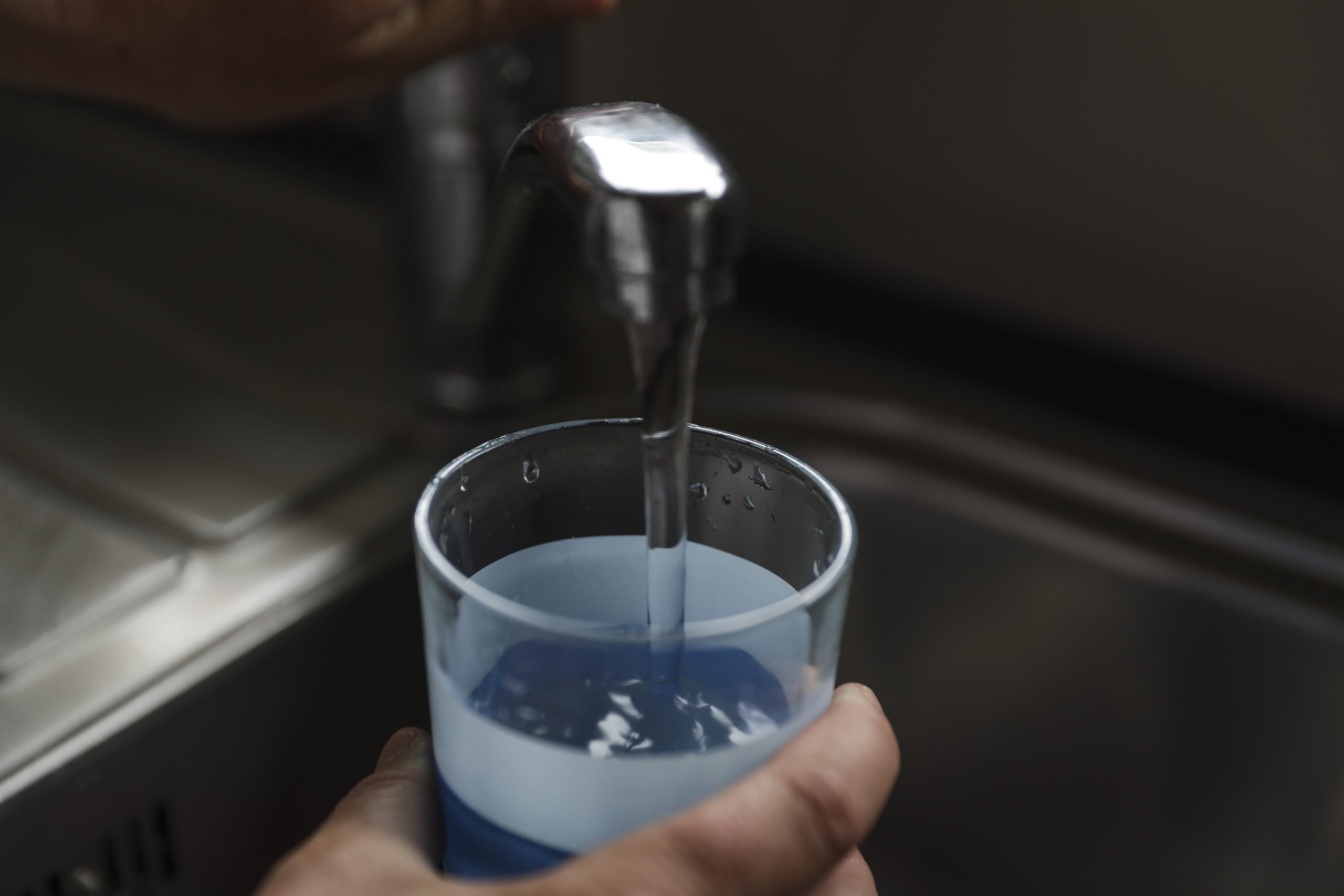Nelson and Tasman poised to go-it-alone on water


Both Nelson and Tasman are proposing to retain responsibility for delivering three waters services rather than setting up separate water services organisations. Photo: Rebekah Parsons-King/RNZ
While other districts work towards joint water entities, the Top of the South is looking fragmented as Nelson and Tasman propose retaining responsibility for three waters services.
After two previous plans would have rolled Nelson Tasman’s three waters services into larger entities, both councils are now proposing to go-it-alone.
Nelson and Tasman are undertaking the necessary work to determine how their three waters services will be delivered under the Coalition Government’s Local Water Done Well policy.
Earlier proposals under the previous Labour Government's scrapped policy would have initially rolled the two districts into a water entity that spanned from Gisborne to Wellington, and subsequently into a Top of the South Island entity.
Unlike Labour’s proposal, Local Water Done Well gives councils the chance to pick which framework suited them best.
The five options are: an in-house business unit; a council-owned organisation, either by itself or in partnership with neighbouring councils; a mixed council and consumer trust; or a full consumer trust.
Both councils are proposing to continue delivering their water services internally.

Nelson City Council has affirmed its intention to continue its current approach after 18 of 28 submissions supported that option through consultation.
Mayor Nick Smith has long been vocal about the status quo being the best option for the city, whose water he has said was “better than any other council’s”.
Despite Nelson already closely cooperating with Tasman in wastewater through the joint Nelson Regional Sewerage Business Unit, Nick has opposed further water integration with its southern neighbour under the current local government structure.
The cost of water for Nelson residents is a key driver behind the city’s direction.
Figures from the Department of Internal Affairs show that in 2051, at today’s prices, Nelson households would spend $2330 per year under the in-house model.
But Tasman faces significant future costs for large wastewater upgrades in Motueka and Tākaka, drinking water upgrades on the Waimea Plains, and debt from its recently-completed dam, among other costs.
Households in the district are facing yearly bills of $6760 in 2051 under the current framework.
Under modelling that combined the Top of the South councils, including Marlborough, together, the annual cost per household in 2051 were $3150 – more than halving the bill for Tasman, but increasing Nelson’s by about a third.
Nick credits Nelson's low cost to the city’s legacy of proactive investment in three waters services and believed residents shouldn’t rely on other districts to subsidise their water.
“There has been a misplaced view that we can find someone else to pay the bill,” he said.
“There is nobody that’s going to bail them out and nor should there be.”
Similarly, councillor Mel Courtney said Nelsonians were “deeply affected” by the cost-of-living crisis and so the city should avoid “shackling” itself to Tasman.
Deputy mayor Rohan O’Neill-Stevens has also backed retaining Nelson’s current approach.
However, they warned that the city would need “large amounts” of spending in the future to keep the high quality of its water services and future councils must make those investments rather than falling into the trap of deferring essential projects, as had been done in other regions.
Rohan added that while going it alone was the “prudent path” forward now, it might not be in the future, and so the city should be open to changing tack if circumstances changed.

The city will now develop its water services delivery plan for the in-house model before it’s eventually submitted for Government approval in August.
Group manager infrastructure, Alec Louverdis, said that Nelson would continue liaising with Tasman.
In Tasman, district council staff have been in discussions with Marlborough and Buller about the possibility of forming a joint council-controlled organisation for their water services.
Nelson had been welcome to join the discussions, but Tasman has not factored the city into its planning due to the stance of its leadership.
Staff also recommended last month that the council confirm that its long-term objective for the delivery of its water services was a multi-council council-controlled organisation.
But uninflated financial modelling of a range of options show that in 2034/35 the annual water connection charge would vary by a maximum of $335 across all the different scenarios.
While the multi-council approach was cheapest, it would also likely entail millions of dollars of spending to set up and so elected members weren’t decisively swayed by that option.
A council organisation cannot sit on a council committee, and so that structure would also have implications for the joint sewerage business unit.
There were also uncertainties with future local government reforms that could remove key responsibilities from councils which could then threaten Tasman District Council’s viability as an organisation if it also wasn’t responsible for three waters.
As such, elected members instead decided that Tasman would consult on retaining its in-house approach to water, but will continue discussing three waters services with its neighbours.
While the Government describes the in-house option as the ‘Enhanced Status Quo’, Mayor Tim King says it was “certainly not” the same as the current situation.
Under the ‘enhanced’ approach, water funds would be ring-fenced so that only water charges would be the only source of funding for, and could only be spent on, water infrastructure.
While that would mean funds originally slated for water infrastructure couldn’t be spent on other council projects, it would also mean that the annual dividend the council receives from Port Nelson could not be used to offset water costs as was done currently.
The dividend change would have a positive financial effect for residents not attached to council water services but would come at a cost for water users.
Three waters activities would also be subject to a “far more regulated environment”, with water regulator Taumata Arowai and the Commerce Commission both providing, and charging for, their oversight of water service providers.
Councils’ water services will also get analysed by the Department of Internal Affairs, which won’t be charged, and will be on top the current auditing of council plans, which does cost.
Back in Nelson, Nick described the regulation as “bureaucracy gone mad”.
The Government gets the final sign-off on each district’s plans for the delivery of its three water services.
Tim highlighted that there was a risk that if all the Top of the South councils planned to take care of their own water, the Government might decide to mandate differently.
“Open question as to how that will land.”
Consultation has now opened on Tasman’s in-house proposal, but the updated water delivery framework is not expected to be implemented until July 2027, after a local and a national election.
“There’s a fair bit of water to go under this proverbial bridge yet,” Tim said.

